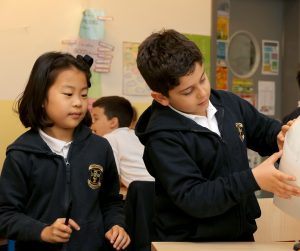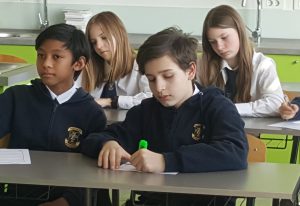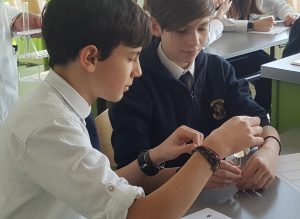International learning goals are unique throughout Bright Horizons curriculum and they help young children to gain an increasingly sophisticated national, international and intercultural perspective and highly applicable knowledge.
Established and approved by the Ministry of Science and Education in 2013, the Bright Horizons International British School applies the internationally recognized and fastest expanding educational program International Primary Curriculum together with the British national Curriculum.

International learning goals are unique throughout Bright Horizons curriculum and they help young children begin the move towards an increasingly sophisticated national, international and intercultural perspective. Each thematic IPC unit includes an international aspect, to help develop a sense of ‘international mindedness’.
This school year Bright Horizons IBSZ together with schools from Cyprus, Slovenia, Bulgaria and Spain got approval for the multilateral project “Little Sociopreneurs” through Erasmus + programme.

Erasmus + is strategic framework for European cooperation in education and training. It is a forum that allows Member countries to cooperate in building best practice. This project aligns with all curriculum goals that school already follows.
The framework is based on the lifelong learning approach. It therefore addresses outcomes from early childhood to adult vocational and higher education, and is designed to cover learning in all contexts: formal, non-formal and informal.
In this particular project social entrepreneurship has a wider meaning as it embraces moral values, empathy, social innovation, social responsibility and environmental sustainability. Schools will work together and exchange practices in order to implement social entrepreneurial activities using foreign language, integrated learning and experiencing different kind of arts by meeting European together with the local cultural heritage.
Concerning students the aim of the project is to:
– empower them so as they will be able to address the society’s needs
– enable them to address challenges through an enterprising approach by suggesting ideas for solving the social and environmental problems
– be able to suggest technological, social and environmental change
– reduce inequality in education by fostering the implementation of experiential learning
– experience different types and aspects of artistic creation
– meet the cultural heritage of their country and learn more about the European cultural heritage
– see connections between the cultural heritage of different European countries
– raise and strengthen the European identity
In May this year four students from Bright Horizons IBSZ together with their teachers will have the opportunity to visit school in Catalonia to share their experiences and plan next steps of the project. This will enable students to develop new skills, learn and share new ideas. Teachers will be inspired by new colleagues, refresh their thinking and return from this mobility enthused and motivated.
